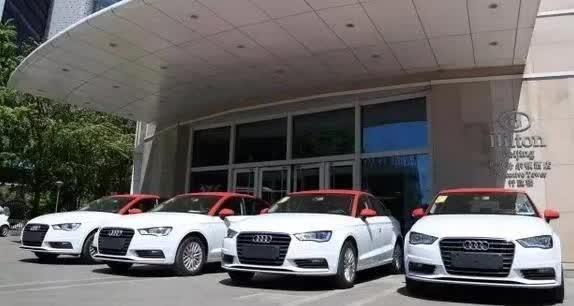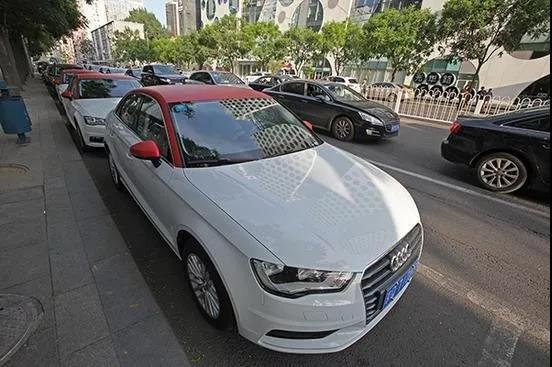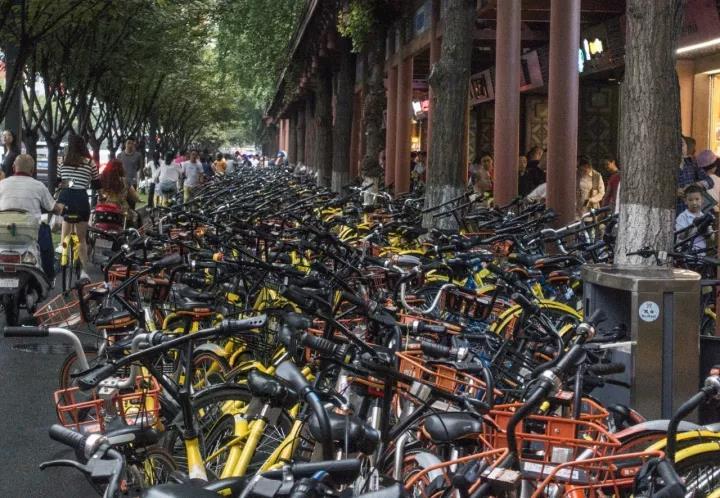Another shared car ""EZZY"" collapsed and the sharing economy began to ebb?
Cctv newsOn the evening of October 23rd, EZZY, a shared car brand operating in Beijing, suddenly announced the dissolution of the company to its employees. A person familiar with the matter said that the company has set up a liquidation committee at present, and is going through legal procedures, and solutions to various problems, including deposit disposal, will be released in the near future.
In recent years, China’s car rental industry has shown a rapid development trend, especially with the wide application of mobile internet technology and the promotion of new energy vehicles, the car sharing model, also known as time-sharing rental, has emerged in Beijing, Shanghai, Guangzhou and Shenzhen.
According to incomplete statistics, by the end of 2016, there were more than 370 shared car platforms in China, and more than 100 were put into operation. Among them, EZZY shared car of Beijing Dameng Technology Co., Ltd., with high-end cars and BMW electric cars as highlights, entered the "high-end shared car market" in Beijing. The founder of the company has publicly stated that EZZY has registered 100,000 users.

Employees received "lost contact" from the founder of WeChat "No work tomorrow" late at night.
On October 24th, an employee of EZZY, who did not want to be named, said: "On the evening of 23rd, the company suddenly held a high-level meeting, and then informed us through WeChat group that all employees were dissolved and would not have to go to work tomorrow, without explaining the specific reasons."
The above-mentioned employees said that their wages were not paid in October, and the company verbally promised to compensate them: "They will not treat us badly", and at the same time asked them to keep their mouths shut and keep all matters of the company confidential.
On Sina Weibo, some users said that they had applied to EZZY for a refund of the deposit since September 24, but the company has been delaying it on the grounds of financial evasion. The deposit paid by EZZY members ranges from 1200 to 2000 yuan.
It is understood that after the incident, Fu Qiang, the founder of EZZY Company, deleted a large number of media friends in WeChat and blocked the contact information, and was in a state of losing contact with the outside world.

Why did EZZY shut down?
First of all, EZZY’s distribution volume is seriously insufficient.
Some EZZY employees said that before the company stopped operating, there were less than 100 vehicles actually operating in Beijing.
The imbalance between supply and demand has aggravated the compliance risk of EZZY: in June this year, it was reported that the shared car provided by EZZY lacked a motor vehicle driving license, which would lead users to violate the Road Traffic Safety Law. In this regard, Fu Qiang once responded that due to the shortage of new cars, the platform had to put some display vehicles into the market.
Secondly, the scheduling ability is not strong.
According to a person familiar with the matter, EZZY’s vehicle deployment relies heavily on offline labor. When dispatchers dispatch vehicles, they often "11-way walk" mixed with other means of transportation, and the intelligence of background dispatching and data integration is insufficient; In addition, many users park their vehicles in underground garages, residential areas and other areas, which reduces the efficiency of offline scheduling.
According to industry insiders, the most important thing to share a car is scheduling. The scheduling efficiency is not high, which will provide operating costs and affect the experience, resulting in the loss of users.
Third, the heavy asset business "burns money" too fast.
Unlike bike-sharing, where each bicycle costs several hundred yuan to several thousand yuan, the cost of a car starts at tens of thousands of yuan, which is a heavy asset business and burns money quickly. Without a huge employer background and the support of the automobile factory, it is difficult to bargain with the automobile manufacturers. Small and beautiful model, it is difficult to survive in this business.

The market capacity of industries with rapid growth of sharing economy is equivalent to 10% of China’s GDP.
"Sharing economy" is now well known by more and more consumers, and bike-sharing, shared charging treasure, shared umbrella and shared car have sprung up.
According to the report of the National Information Center, the financing scale of the sharing economy industry in China in 2016 was 170 billion, with 600 million consumers enjoying the sharing economy and more than 60 million service providers participating in the sharing economy. At the same time, the growth rate has been very fast in recent years. It is estimated that in 2020, the market capacity of the industry is equivalent to 10% of China’s GDP.

But the problem also follows. The exit of bike-sharing such as Wukong Bike and 3Vbike, as well as the behavior of machimachi Bike and Cool Bike that "the deposit is difficult to refund" and even the money is rolled away, have "smeared a black hand" on the bike-sharing industry; The problem of "the deposit is difficult to refund" has also appeared in the field of shared cars, including TOGO Tuge and GOFUN shared cars, and users have fed back similar problems; In the shared charging treasure industry, hippo charging and Letian have been shut down, and Hi Power has been rumored to be laid off.

— — CCTV Review — —
In the market called sharing, some enterprises are alive and some are already dead; Some products are still promising, while others are short-lived. Without him, "the market is the market after all."
The same model, different fate: it is not enough to "share"
For example, the vitality of bike-sharing is still going on, but it is difficult to really spread the shared car. The same pattern, different fate, just reflects that it is not possible to "share".
Compared with bike-sharing, the most prominent feature of sharing cars is the emphasis on assets, and an important element of sharing economy is precisely economies of scale. Insufficient capital and licenses, not to mention long-term profit expectations, even the start is very difficult, and there is no sufficient market share. The final result is likely to be "thank you for your patronage".

Sharing economy is expected to be profitable with boundaries.
In the long run, a society where everything is shared seems to meet people’s life expectations; But in the short term, there is indeed a big bubble in the blind development of cluster. In the final analysis, the sharing economy has boundaries. From the most basic point of view, as the "economy" of industry (business), it should have profit expectation.
Only from this point of view, it is hard to say that mobike and ofo, which are most praised at present, have found a clear profit model. Furthermore, the profit expectation is based on the fact that products really meet the demand and improve economic efficiency, that is, from the perspective of social and economic efficiency, it should be "economic" rather than "uneconomical".
The reason why sharing umbrellas and basketball is short-lived can be attributed to the lack of use scenarios. If even the most basic "opening rate" cannot be guaranteed, the input and output are doomed to be disproportionate.

There is no victorious model, only a volatile market.
In fact,There is no model of winning every battle, only a changing market.The market is very specific, and it is successful abroad, but it may not be acclimatized in China.
For example, Airbnb, a shared residence, is still stumbling in the China market. The reasons are inseparable from the differences in family privacy, the level of social integrity, and the highly competitive reality of low-cost hotels in China. Talking about model promotion without such a business environment will certainly face many subsequent difficulties.
Sharing mode also faces industry competition and administrative regulation.
Of course, the sharing model also faces industry competition and administrative regulation. Looking at the development history of the group buying industry, we can clearly find that the combination of Internet and big capital indicates the final outcome of monopoly or oligarchy, and the sharing industry is no exception.
In recent months, mobike has launched a competitive strategy of riding 5 yuan for one quarter, which is unbearable for small enterprises, and the bike-sharing industry is "fading". At the same time, when the power of quantity control is clearly given to cities, the history of disorderly delivery in bike-sharing should soon pass, and some enterprises are likely to face the situation of capital support without market support.

Regulatory measures need to be strictly implemented, and consumers should pay attention to risks.
The rapid growth and decay of enterprises naturally brings out a regulatory problem. At the end of September, after the problem of poor management of cool cycling was exposed, a run followed, and users could not withdraw cash smoothly. This shows that the stipulation of "Guiding Opinions on Encouraging and Regulating the Development of Internet Rental Bicycles" that enterprises should strictly distinguish their own funds from users’ deposits and prepayments "and" implement earmarking "is probably not implemented.
For consumers, this is also a vivid risk warning: sharing all kinds of early adopters is actually sharing market risks. To protect consumers’ rights and interests, regulatory measures should not stay on paper, but should be implemented more strictly.
Respect the laws of the market and respect the existing boundaries of the sharing economy.
Is the bubble of disorderly development punctured, or is the tide of sharing economy itself receding? It remains to be seen. But what is certain is that the days when sharing can raise money and sharing is the darling have passed. Compared with the simple concept of playing, we need to respect the laws of the market and respect the existing boundaries of the sharing economy.
Wen Yi, the Mountain of Special Contributions for CCTV Comments